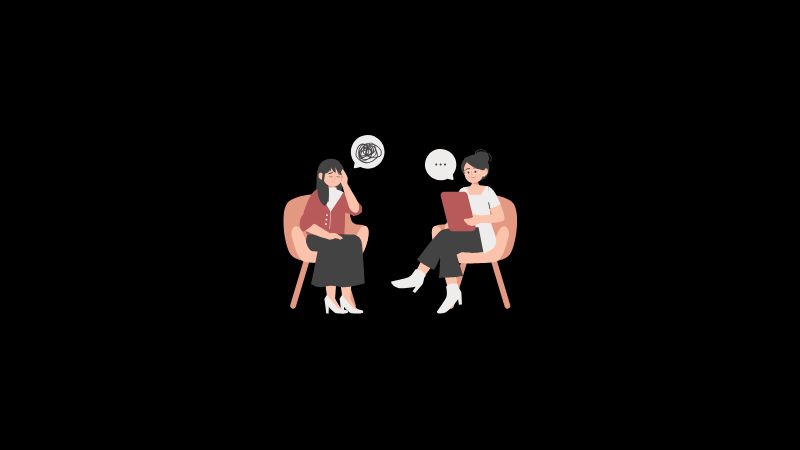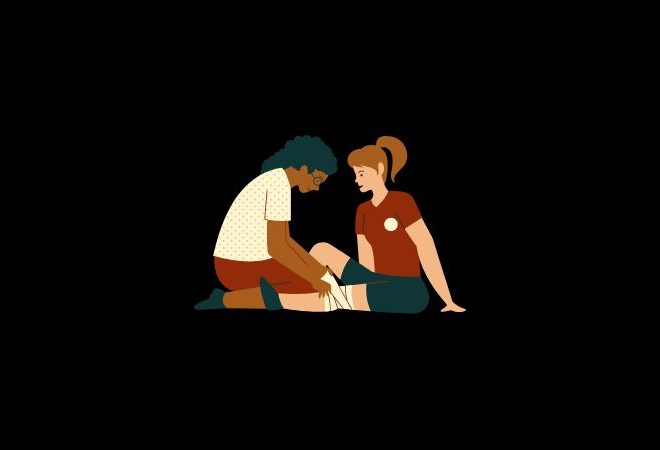
7 Indicators You Want To Get Psychological Well being Assist Now
Affiliate hyperlink discover: As an affiliate of BetterHelp and different third-party distributors, We’ll obtain compensation when you make a purchase order utilizing the hyperlinks supplied on this web page. For extra info, go to our disclosure web page.
Final Up to date on September 3, 2025 by Randy Withers
Everybody faces stress, unhappiness, and setbacks. However generally the load turns into too heavy and begins to have an effect on the way you assume, really feel, and performance. Recognizing when it’s time to hunt psychological well being assist can really feel complicated—many individuals second-guess their wants or watch for a disaster earlier than reaching out. You don’t must. Early assist reduces struggling, builds coping expertise, and prevents issues from escalating.
This information explains what psychological well being assist truly appears to be like like, then presents seven widespread indicators that it might be time to attach with assist. You’ll discover clear rationale for every signal and sensible subsequent steps so you may determine—confidently—learn how to transfer ahead.
 Psychological Well being Assist: 7 Clear Indicators You Shouldn’t Ignore” class=”wp-image-45526″ model=”object-fit:cowl;width:400px;peak:600px”/>
Psychological Well being Assist: 7 Clear Indicators You Shouldn’t Ignore” class=”wp-image-45526″ model=”object-fit:cowl;width:400px;peak:600px”/>7 Clear Indicators You Shouldn’t Ignore
What Does Psychological Well being Assist Look Like?
Psychological well being assist is broader than many individuals understand. Psychotherapy is one path: a licensed therapist offers a structured, non-public house to grasp your feelings, reframe unhelpful ideas, and be taught expertise (like problem-solving, boundary-setting, or anxiety-reduction strategies). Some individuals begin with particular person remedy, whereas others choose to be taught alongside friends in clinician-led group remedy—particularly when the main target is particular (e.g., anxiousness administration, grief, or trauma restoration). Both route can scale back misery and enhance each day functioning over time.
For some, treatment is a useful addition—particularly when signs really feel fixed or overwhelming. You would possibly seek the advice of with a psychiatrist or a psychiatric nurse practitioner to debate choices, advantages, and unwanted side effects, and to create a plan that matches your objectives. Remedy doesn’t exchange remedy; usually, the mix offers probably the most reduction by addressing each biology and conduct.
Psychological well being assist may also be community-based. Peer and self-help teams (like AA or NA) provide shared expertise and accountability; they’re particularly helpful when isolation or substance use complicate temper. In moments of acute disaster—when security is in danger—hospital or partial-hospital applications present stabilization and intensive care. And by no means overlook on a regular basis social helps: a trusted buddy, mentor, or member of the family could be a very important first step, serving to you acknowledge what you’re going by means of and inspiring you to succeed in out for skilled care when wanted.
7 Indicators You Want Psychological Well being Assist
When you’ve been involved about your psychological well being, take note of persistent patterns that intervene with work, relationships, or each day tasks. If you discover the indicators under displaying up for greater than a few weeks—or intensifying—it is a signal it might be time to speak with an expert.
1. Persistent Disappointment or Hopelessness
Feeling down from time to time is regular; feeling persistently unhappy, empty, or hopeless is completely different. When these feelings linger, you could discover diminished motivation, problem experiencing pleasure, or ideas like “what’s the purpose?” The rationale right here is simple: untreated low temper tends to slim your world—fewer actions, fewer connections—which in flip deepens despair.
What to do subsequent: observe your temper (easy 1–10 scores), reintroduce one manageable exercise you used to take pleasure in, and schedule an consumption with a therapist. If the heaviness feels unshakeable, including a medical analysis can make clear whether or not treatment would possibly assist jump-start reduction whilst you construct coping expertise.
2. Issue Managing Every day Life
Psychological well being signs usually present up as sensible issues—missed deadlines, uncared for hygiene, unpaid payments, or a messy residing house you may’t face. The rationale: when your mind is overloaded by stress, anxiousness, or despair, govt features (planning, prioritizing, initiating duties) sputter. It’s not laziness; it’s capability.
What to do subsequent: choose one small routine (e.g., morning bathe, 10-minute tidy, or a brief stroll) and anchor it to one thing you already do (after espresso, earlier than lunch). Take into account remedy that targets group and activation methods (behavioral activation, CBT). If these struggles persist regardless of effort, a scientific evaluation can uncover underlying contributors (e.g., despair, ADHD, anxiousness) and information tailor-made assist.
3. Adjustments in Sleep and Urge for food
Your physique usually alerts what your thoughts is carrying. Massive swings in sleep (insomnia, oversleeping) or urge for food (overeating, undereating) are widespread when psychological well being shifts. Sleep issues can worsen temper, focus, ache tolerance, and stress reactivity; in flip, poor temper makes restorative sleep even tougher—making a loop.
What to do subsequent: stabilize primary rhythms with small, repeatable steps—constant wake time, morning gentle, a quick wind-down routine, and balanced meals/snacks even when urge for food is low. If sleep issues persist or embody nightmares, loud night breathing/pauses in respiratory, or frequent panic at evening, focus on with a major care supplier and a therapist; treating sleep and temper collectively normally yields quicker enchancment.
4. Withdrawal From Buddies and Actions
Pulling again from individuals and passions is a traditional (and comprehensible) response to emotional ache. The rationale: isolation reduces optimistic suggestions out of your surroundings—much less laughter, much less motion, fewer accomplishments—which might quietly reinforce despair or anxiousness. The longer you keep away from, the tougher “re-entry” feels.
What to do subsequent: select one low-pressure connection this week (textual content a buddy, attend a brief group, or be a part of a digital assembly). Set a time restrict (e.g., half-hour) so it’s doable, and debrief afterward: what helped, what didn’t, what you’ll strive subsequent. Therapists usually use graded publicity and values-based objectives to rebuild connection at a tempo that feels protected.

5. Elevated Use of Alcohol or Substances
Utilizing alcohol or medicine to deal with stress, fear, or low temper is a pink flag. Substances might provide non permanent reduction however sometimes worsen sleep, temper, and anxiousness, and may shortly develop into one other downside to handle. The rationale: substance use hijacks the mind’s reward pathways, masking points short-term whereas rising vulnerability long-term.
What to do subsequent: be trustworthy with your self about frequency and triggers. Substitute one substance event this week with a unique soothing routine (stroll, name a buddy, scorching bathe, guided respiratory). If chopping again feels laborious, mix remedy with peer assist (e.g., AA/SMART Restoration). Medical session can deal with cravings and focus on treatment choices that assist sobriety if wanted.
6. Uncontrollable Fear, Panic, or Intrusive Ideas
When fear turns into fixed, panic assaults seem, or intrusive ideas interrupt your day, your nervous system is doing its finest to guard you—but it surely’s caught in “excessive alert.” The rationale: continual anxiousness narrows consideration, fuels avoidance, and erodes confidence, making abnormal duties really feel dangerous or overwhelming.
What to do subsequent: be taught one grounding ability (paced respiratory, 5–4–3–2–1 sensory train) and apply it each day—not simply throughout misery. Remedy may also help you problem catastrophic ideas and regularly face what you’ve been avoiding. If signs are frequent or extreme, a medical analysis can decide whether or not short- or long-term treatment would possibly assist whilst you construct coping capability.
7. Ideas of Self-Hurt or Lack of ability to Keep Protected
When you’ve had ideas of harming your self, really feel such as you’re a burden, or fear you may’t keep protected, deal with that as pressing—not as a private failure. The rationale is easy: security comes first. These ideas sign that your system is overwhelmed and desires instant, compassionate assist.
What to do subsequent: inform somebody you belief right now and make a security plan (warning indicators, coping steps, individuals you may name, locations you may go). When you’re in instant hazard, name 911 or the Suicide & Disaster Lifeline at 988 (U.S.). Hospitals and disaster facilities are there to stabilize you and join you with outpatient care. Reaching out shortly protects your future choices—and your life.
Ultimate Ideas
Struggling doesn’t imply you’re damaged; it means you’re human. When you acknowledge your self in these patterns, take into account this your permission to start out exploring psychological well being assist earlier than issues worsen. You possibly can start small—one dialog, one appointment, one ability—and construct from there.
Most significantly, you don’t have to do that alone. Whether or not you speak with a therapist, a doctor, a peer group, or a trusted buddy, the choice to hunt assistance is an act of power. With the proper assist, it’s completely attainable to really feel extra steady, extra linked, and extra like your self once more.
Let me know when you appreciated this submit. Your suggestions is necessary!


